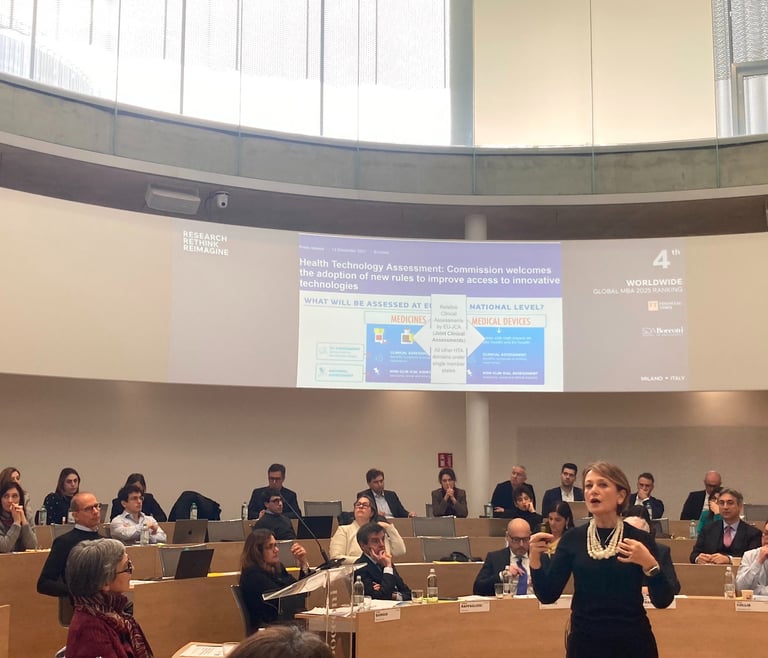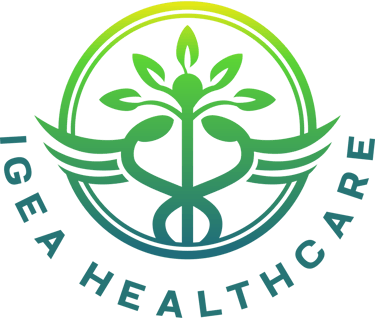SDA Bocconi in conversation with European policy makers on access to innovative medical devices in the EU
I attended one of SDA Bocconi's privileged talks with top European policy makers, discussing adopting a lifecyle approach to enhance access to innovative medical devices, regulatory insights and future perspectives.
POSTS
Irene Petre
3/18/20252 min read


Today I had the pleasure of attending a high-level Privileged Talk on the challenges and opportunities of good innovation and regulation in MedTech in the EU organised by the Government and Health Division of the Bocconi SDA University in Milan with high-profile speakers and scholars such as Rossana Tarricone, Giuditta Callea, Andrea Rappagliosi, Alan Fraser, Marco Marchetti and others. We discussed key aspects such as the fine balance between MedTech innovation and regulations, Early Feasibility Studies, the potential for an Accelerated Access Program and the evolving link between the MDR and the HTAR.
The keynote speaker Flora Giorgio, introduced upcoming regulation and strategy frameworks as well as key EU policy priorities for 2024-29 such as:
- sustainable competitiveness
- digitalisation - prioritising AI
- simplification of legislation
- innovation
- resilience - through initiatives such as the Critical Medicines Act adopted last week or the European Action Plan on Cybersecurity of Hospitals and Healthcare Providers.
Loris Chiusoli from TUV SUD presented the notified body perspective on harmonisation of implementation of MedTech related regulations and improving clarity and efficiency, with a a proposal for increased efficiency in the process such as adopting a 45/210/45 calendar days for pre-application/conformity assessment/certification respectively. This would represent a significant improvement in speed to market, bringing the whole process down to circa 10 months, when at the moment only the conformity assessment can take more than one year on some occasions, depending on device complexity and the backlog of products in assessment.
In relation to this Prof. Giuditta Callea presented a great initiative – the EU harmonised approach to Early Feasibility Studies (EFS) for Medical Devices (https://heuefs.eu), a four year public – private partnership that will offer a standardised framework for early clinical studies across all EU countries, improving the quality of research, data and early device prototypes and ultimately providing guidance to innovators and manufacturing companies, ensuring sounder products reach the market in all corners of the continent (or at least that is the aspiration) for the benefit of patients and the entire healthcare ecosystem in Europe.
Good sustainable innovation is not a one-off quick spark of a moment, it is a lengthy process that requires planning for innovation and process “routines” such as those included in the EFS framework.
I particularly resonated with Cardiff University Prof. Alan G. Fraser’s observation that there is “good” and “bad” innovation in Healthcare: “good” innovation is ethical and useful, serving an unmet need and based on hard clinical evidence studies that sometimes need their time to complete and analyse. Good science and solutions will always be backed by robust real world evidence and data, thus minimising risks for patients, additional costs for producers, reputation damage and recalls.
IGEA Healthcare
Strategic Advisory for Life Sciences
Switzerland, UK, Italy
contact@igeahealthcare.com
© 2025. All rights reserved.
